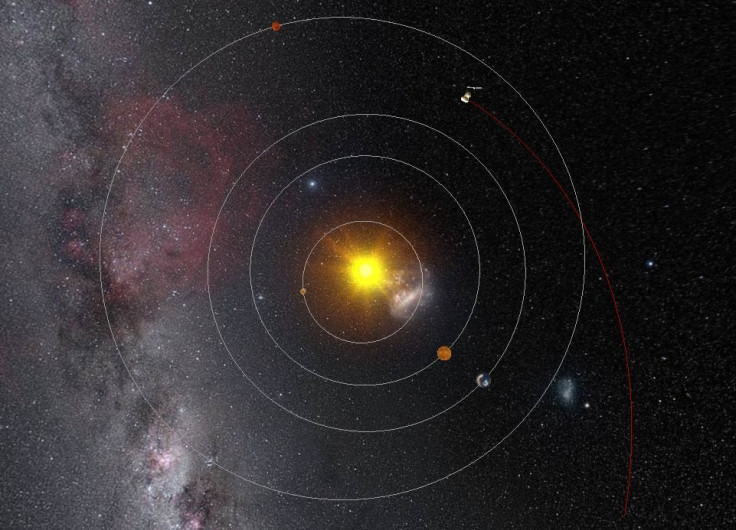Comet 67P, With ESA’s Philae Lander Riding On Its Back, Nears Sun

Comet 67P/Churyumov-Gerasimenko, the alien host of the European Space Agency’s (ESA) Philae lander transported there by the Rosetta spacecraft, will go past the sun this week, providing astronomers with new opportunities to better understand the origins of life on Earth.
Comet 67P is believed to have complex molecules that could be the key building blocks of life and when it nears the sun, the extreme heat is expected to cause the space rock to shed more of its icy coating, spewing out untouched particles left from the solar system’s birth 4.6 billion years ago. If the comet indeed changes in the way it is expected to, the Rosetta spacecraft will get an opportunity to discover clues to the evolution of the solar system.
This is “the greatest opportunity to catch material and analyse it if you're looking for rare species of molecules,” Mark McCaughrean, an ESA expert, told Agence France-Presse (AFP). “We want to look at the more pristine material that might come out” from beneath the layer of icy dust.
Comet 67P will reach its closest point to the sun -- nearly 116 million miles -- at about 2:00 a.m. GMT on Thursday (10:00 p.m. EDT Wednesday), before setting out on another 6.5-year-long egg-shaped orbit. While gas and dust are blasting off Comet 67P’s surface as it gets closer to the sun, scientists want the comet’s “neck” -- that has a 1,640-foot long crack -- to break apart and reveal more about itself.
“That's really the Holy Grail... to see the interior of the comet,” McCaughrean told AFP.
Scientists at the ESA recently published the first scientific analysis of the data from Comet 67P provided by Rosetta’s Philae lander last November. According to the findings, the comet hosts 16 organic compounds, four of which have never been detected on comets before.
Comet 67P, with the Philae lander, is currently travelling at a speed of 21.25 miles per second, while Rosetta is gradually moving farther away from the comet to avoid the effects of the dust storm.
© Copyright IBTimes 2024. All rights reserved.






















